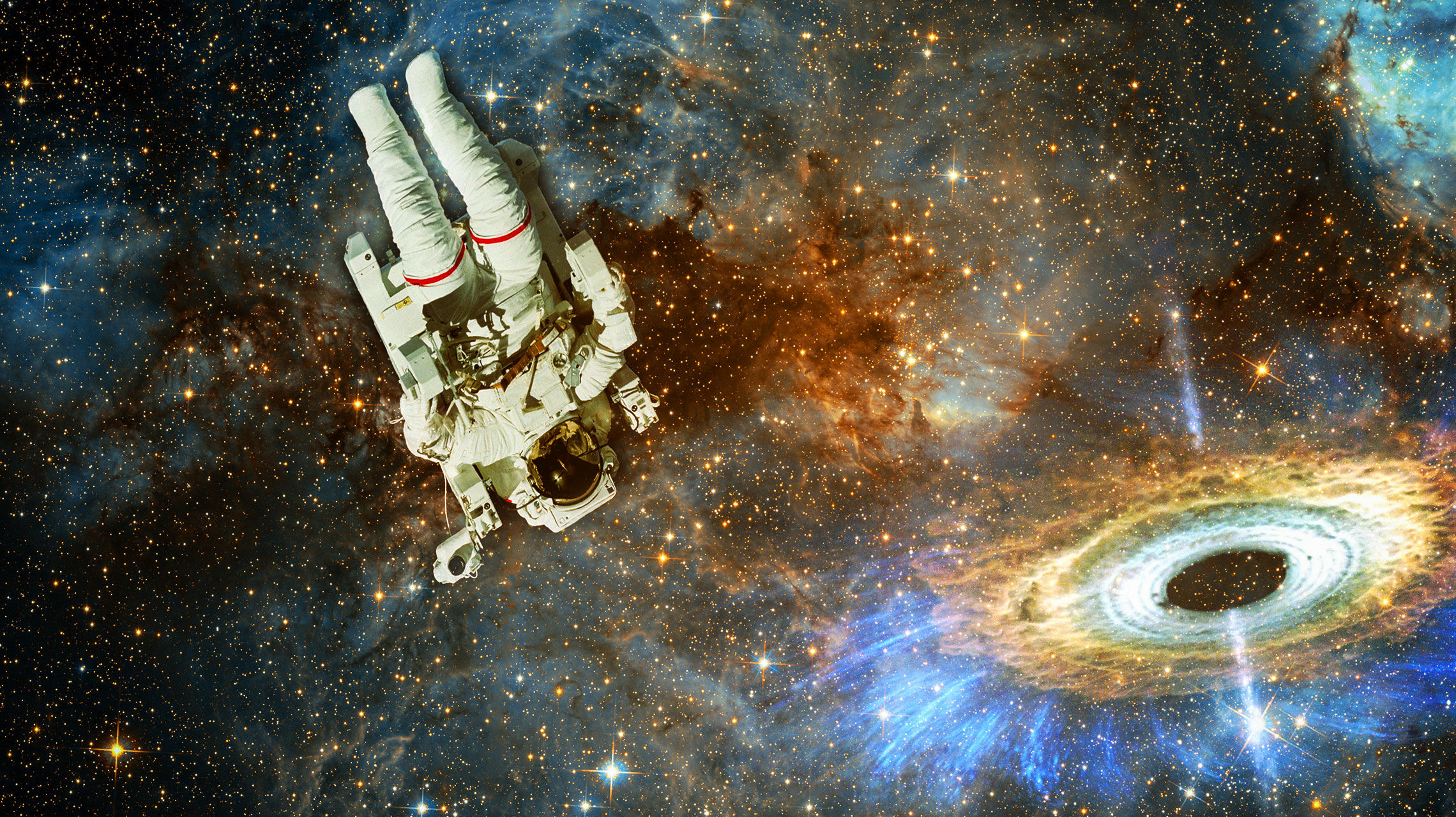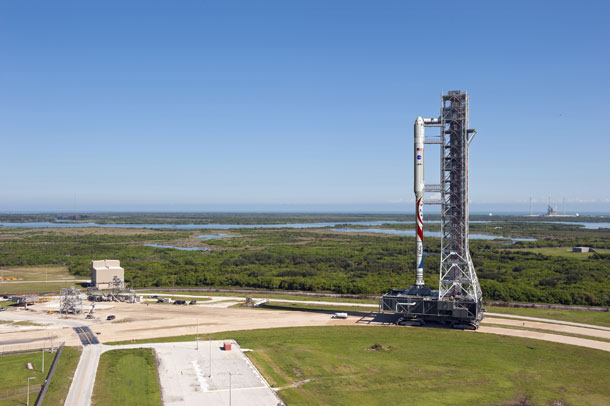Will ATK beat everyone into space?

Right now, the future of US human space exploration is a little unsettled. NASA is still talking about building a new rocket system to replace the Shuttle, but it's unclear how long it will take and how much it will cost. Space X is a private company that has already launched rockets into orbit, and is working to make their vehicles rated to carry humans (there are strict rules about that, which I'll get to in a sec). They're planning an uncrewed launch of the Falcon 9 rocket with a Dragon space capsule to the space station for May 19, which is a massive step in their plans to be the go-to company for launches.
Other companies are working on this as well. Jeff Bezos -- billionaire creator of Amazon.com -- has Blue Origin, a secretive group that is looking to launch sub-orbital and eventually orbital vehicles. Sierra Nevada is working on the Dream Chaser, another orbital vehicle (and they're pretty far along with it, too). Orbital Sciences plans two test launches this year, including a pass of the space station as well.
And now ATK steps up. I've heard about their Liberty rocket, but I haven't been sure where they stand with it. Well, now we know: ATK has announced it will be ready to put humans into orbit by 2015, potentially ahead of Space X.
[Note: image above is artwork; the rocket is not yet built. Click to liftoffenate. Credit: ATK.]
ATK -- a company with a complicated history of mergers and name changes, but with solid rocket experience -- has the wherewithal to come through on this claim. The tech they use for Liberty is based on the now-canceled NASA Ares rocket as well as the European Ariane V vehicle. They've built rockets before (part of the company's legacy is Morton Thiokol, which built the solid rocket boosters for the Shuttle) so this isn't out of the blue.
The new part of all this is that they're designing a crew capsule for the rocket. It's similar to NASA's Orion capsule, but built of lighter weight composite materials (instead of Orion's aluminum). It will be designed to take astronauts to the space station, and stay docked there for up to six months. The capsule and rocket could be tested as soon as early 2015, with a crewed launch later that year.
If true, this adds pressure to Space X's already difficult schedule. There have been delays in the current mission to the space station, but Space X and NASA have both said these delays are due to caution, and not to any inherent problems. Given the nature of the flight -- the first time they'll have a commercial launch to the station and have their Dragon capsule dock with it -- caution is warranted.
Still, from what I've heard, 2015 is the earliest Space X will be able to launch humans. The reason it will take so long is because there are strict requirements from NASA when launching humans into space. One of the most stringent is the launch abort system: a way to get the crew safely away from the rocket if there is a catastrophic failure of the system (like, say, the rocket exploding underneath them). The escape system basically consists of the capsule disengaging from the rocket, and then a small rocket on top of the capsule firing that will very rapidly pull them away from the area. This sort of system puts a lot of stress and strain on the capsule, so there must be a lot of testing of it to make sure it works.
So what does all this mean? Well, if the timelines everyone is reporting stay true, it means America will have the capability to put humans in space in about three years. Who does it first is now anyone's guess. There will be some cachet in being the first to do this: after all, it will be the first time we've been able to launch astronauts ourselves after a four year gap. The media will be all over it.
And in the more immediate term, NASA has money to give to these commercial ventures, to the tune of a half-billion dollars. They're all competing for it, and there may be awards as soon as August of this year (assuming Congress and the White House can cure their own cranial-rectal inversion and fund NASA they way it should be funded).
... but in the long run, we all win. Seriously. Competition is, generally, good, and with so many companies vying to get people into orbit, costs will come down, technology will leap forward, and -- I hope, after a lot of broken promises over the past few decades -- access to space will become easier.
Related Posts:
- Discovery makes one final flight⦠but we must move on.
- The Point on asteroid mining and antiscience
- Happy 10th anniversary, SpaceX!
- NASAâs budget: JWST saved, but not much good news





























